The rapid emergence of mandatory human rights and environmental due diligence (mHREDD) obligations is high on the priority lists of many business practitioners – and will continue to be as the EU Corporate Sustainability Due Diligence Directive (CSDDD) enters trilogue negotiations.
The following two questions surface repeatedly in conversations with business practitioners:
1. What do we need to do to position the business to comply with these laws and to meet stronger expectations from in-scope customers and other business relationships?
2. Will doing so deliver better outcomes for affected people – and if not, what more is needed?
The rapid emergence of mandatory human rights and environmental due diligence (mHREDD) obligations is high on the priority lists of many business practitioners – and will continue to be as the EU Corporate Sustainability Due Diligence Directive (CSDDD) enters trilogue negotiations.
To support business practitioners to anticipate the implications of this rapidly changing landscape, we recently launched a podcast, GBI Conversations. The first series of this podcast unpacked with senior members of the GBI team and its external advisors how these laws and broader trends in the business and human rights field are raising the bar for companies in key – and challenging – areas.
Since the series launch, recent developments have reaffirmed the direction of travel. These include the release of the revised OECD Guidelines for Multinational Enterprises on Responsible Business Conduct, the European Parliament's adoption of its position on the CSDDD and the launch of the International Sustainability Standards Board’s inaugural global sustainability disclosure standards.
Business practitioners should pay close attention to areas where expectations are strengthening. For example:
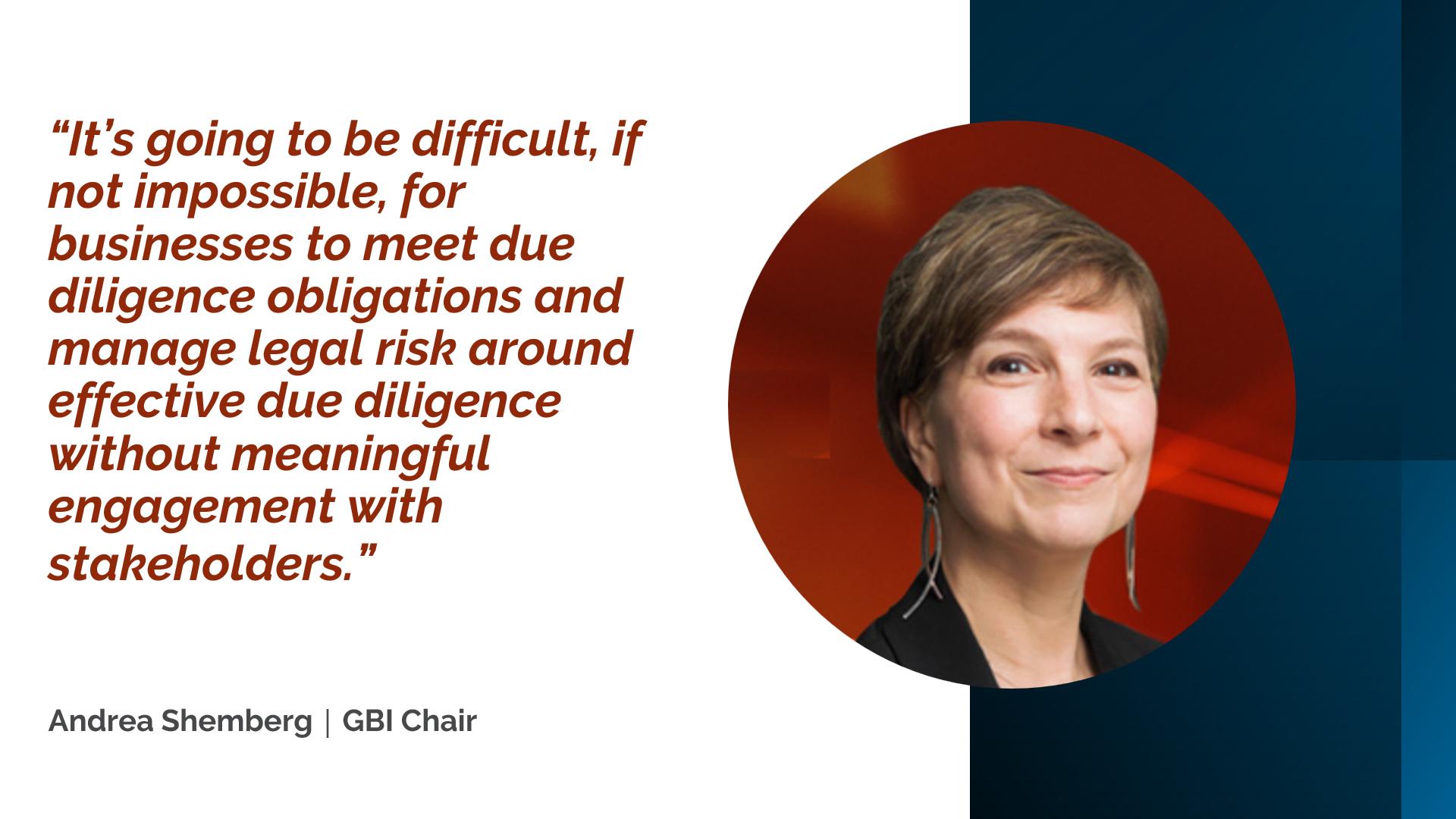
Meaningful stakeholder engagement will be key to responding effectively to emerging mHREDD obligations
Emerging mHREDD laws typically do not include robust requirements relating to meaningful stakeholder engagement. However, companies should be wary of assuming that they can respond effectively to these laws without it. GBI Chair, Andrea Shemberg, observes:
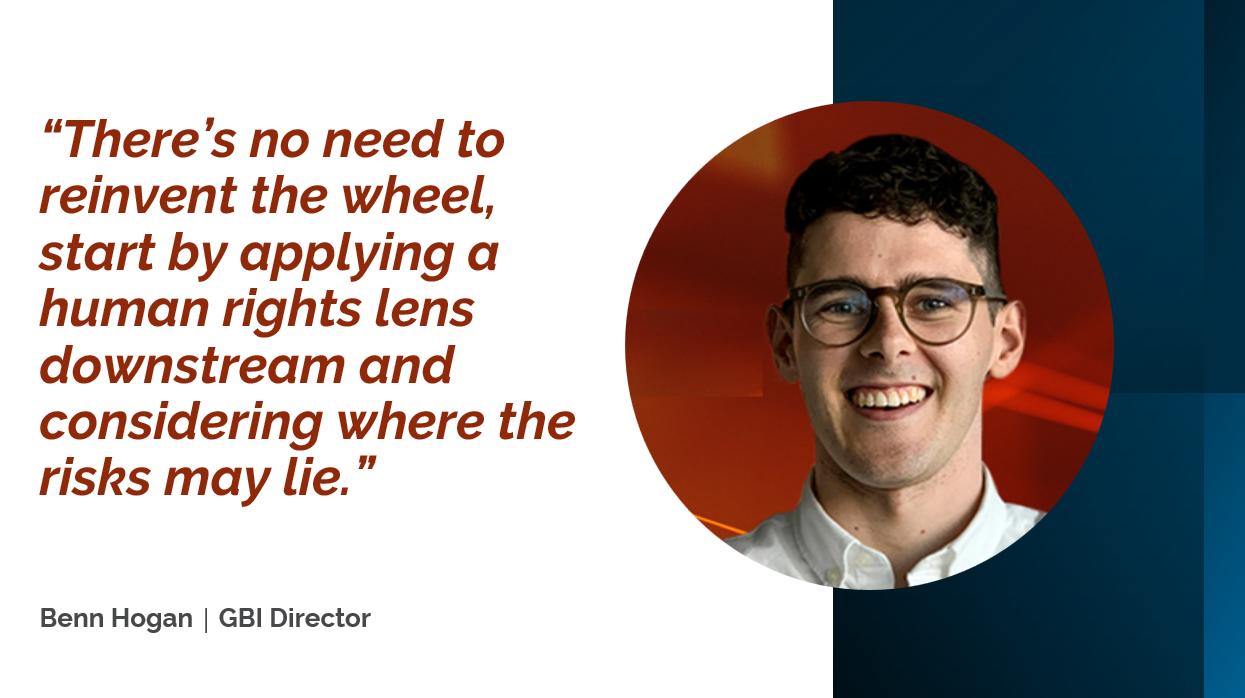
It’s time to get serious about downstream due diligence – and getting started may be easier than you think
A full value chain (upstream and downstream) approach to human rights due diligence has been embedded in key international standards, such as the UN Guiding Principles on Business and Human Rights (UNGPs), for some time and is the clear direction of travel in terms of legal obligations and stakeholder expectations. For companies that have focused primarily on their own operations and supply chains, downstream due diligence may be new. However, GBI Director, Benn Hogan, author of the recent GBI report on effective downstream due diligence for business, notes:
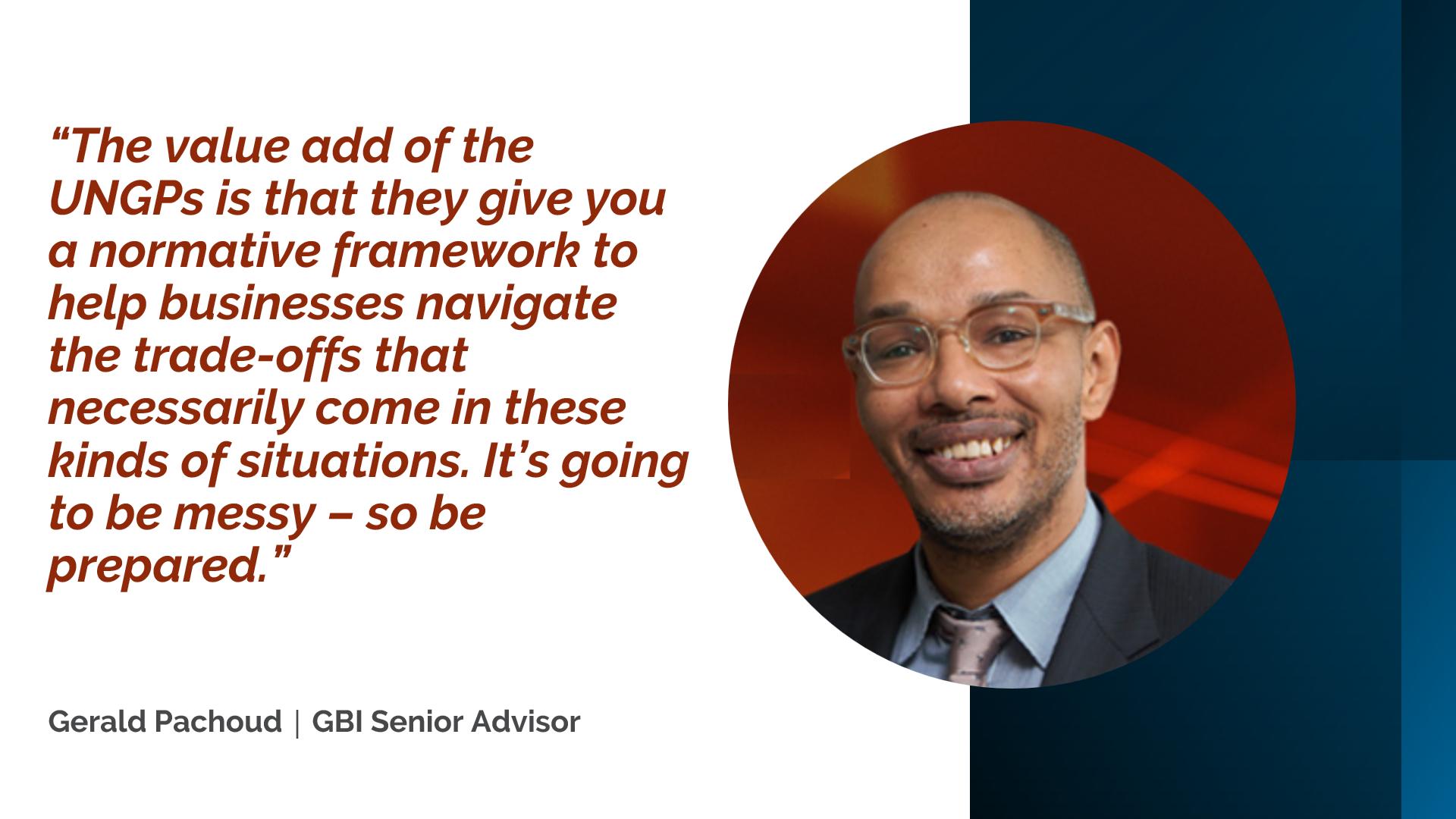
Companies are under increasing pressure to demonstrate a rights-respecting approach when deciding whether to go or to
Shifts in the geopolitical landscape can present acute human rights dilemmas for business, and a growing number of companies are being called on to exit or divest from high-risk markets. The decision to go or to stay is rarely easy, and getting out will not always be the most rights-respecting choice. GBI Senior Advisor, Gerald Pachoud, observes:
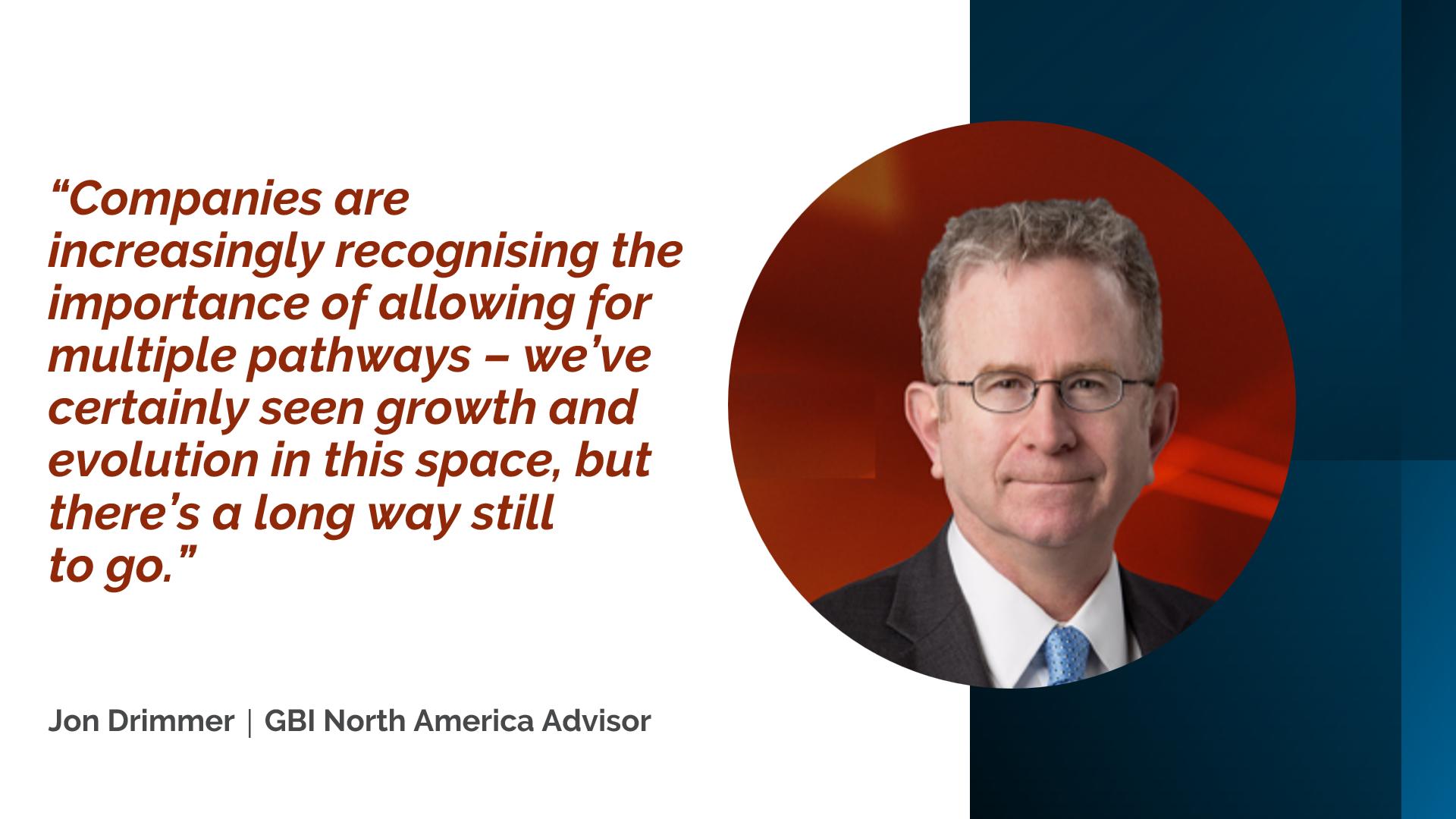
There are opportunities for companies to innovate to strengthen paths to remedy
Provisions in emerging mHREDD laws regarding grievance mechanisms, enforcement and liability are likely to focus minds on outcomes for affected people. While it may not be fair to characterise Pillar 3 of the UNGPs as ‘the forgotten pillar’, there is much to be done here and a crucial role for business to play to ensure issues are identified and addressed early and effectively. GBI North America Advisor, Jon Drimmer, notes:
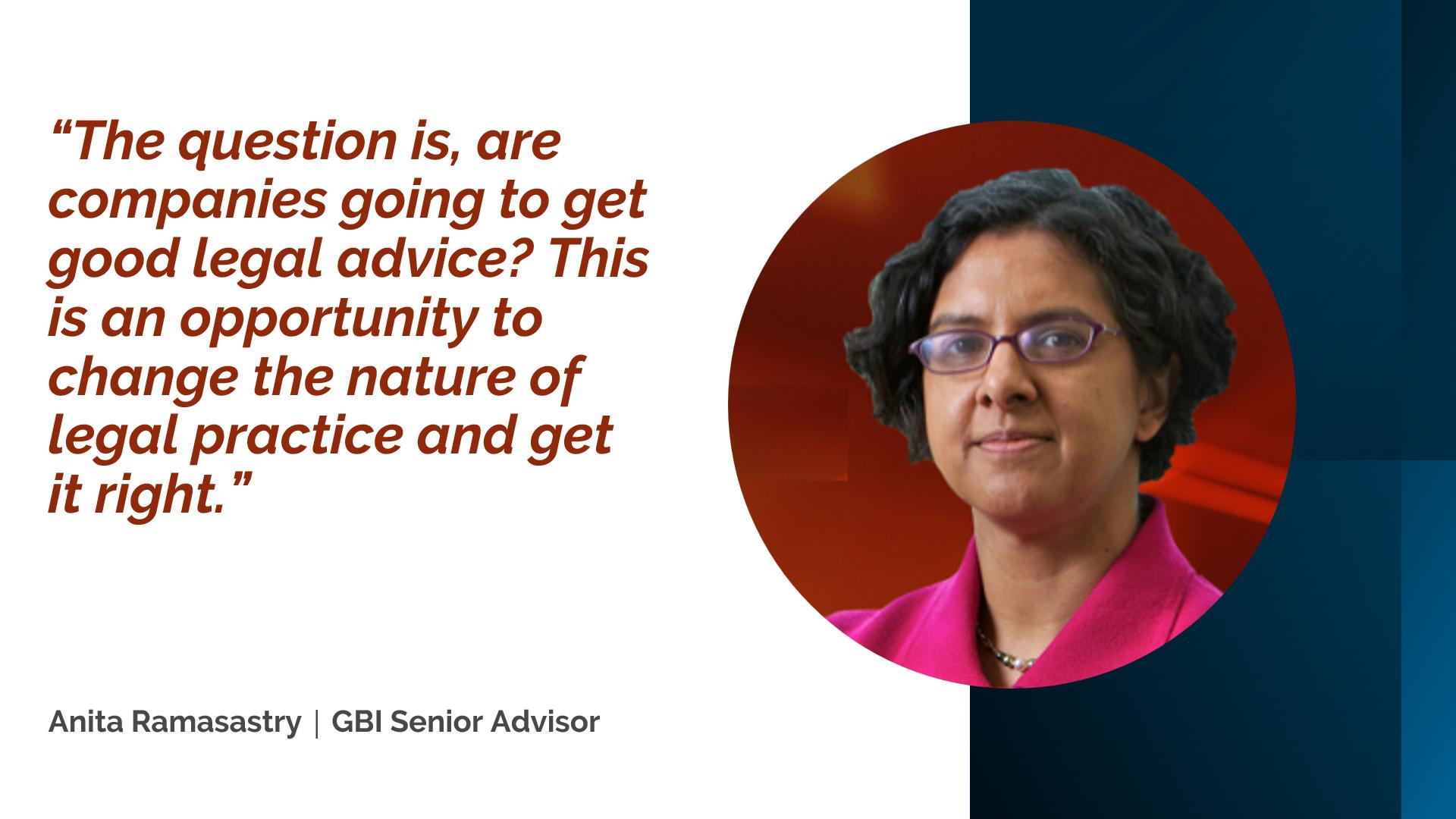
The role of commercial lawyers in companies’ human rights risk management is growing and we need to build expertise rapidly
Law can be highly effective in driving focus and prioritisation on human rights within business – and to that end, the momentum behind emerging mHREDD can be seen as a watershed moment. However, GBI Senior Advisor, Anita Ramasastry, observes:
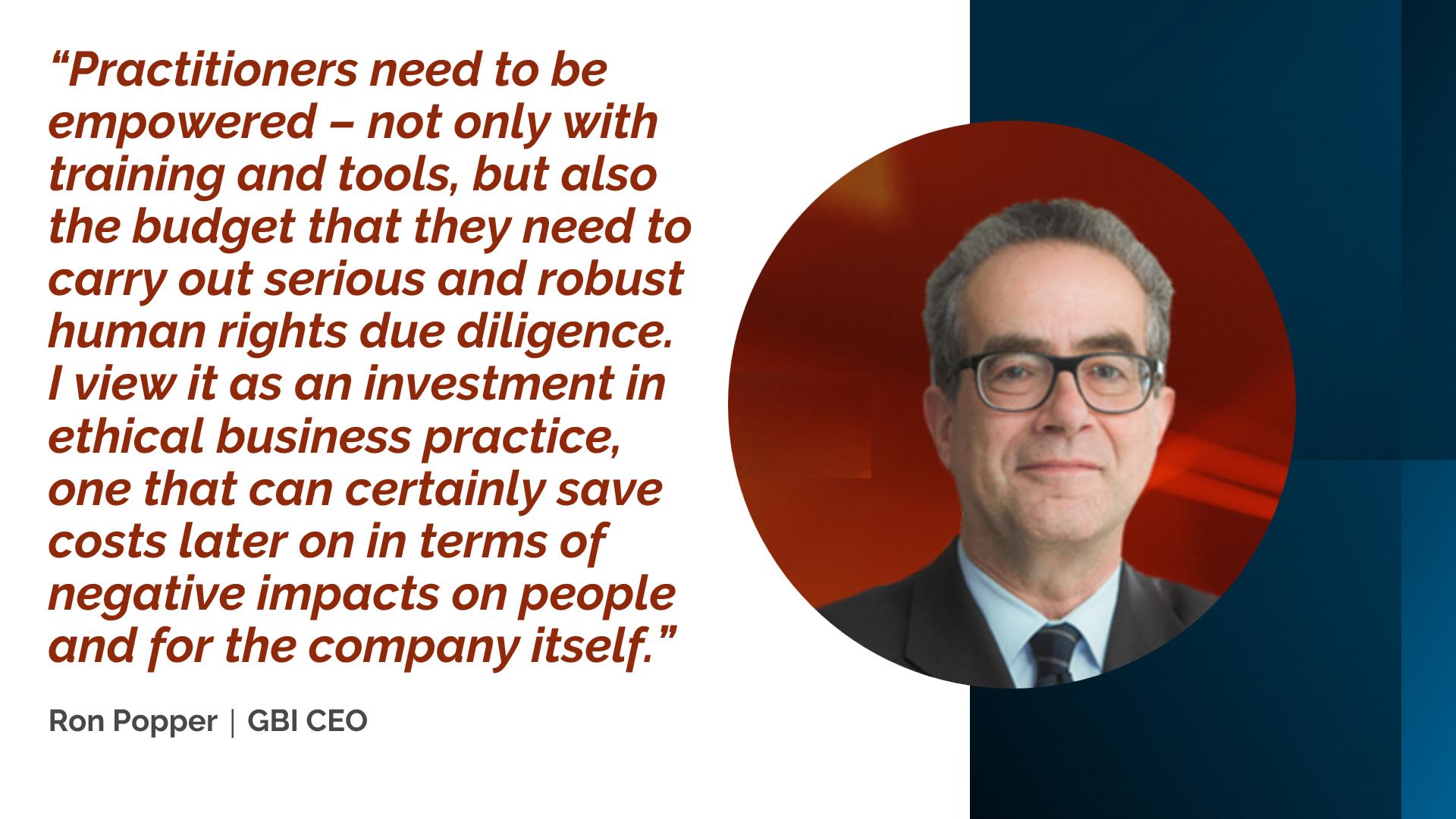
Cross-cutting these challenges is the question of resourcing, which was raised in the first podcast of the series. Many companies’ human rights teams are critically under-resourced and over-stretched
As emerging mHREDD obligations come into force, the role of companies’ human rights teams becomes ever more critical to the sustainability and performance of the business. Many businesses have shown leadership by welcoming and working to inform these developments. We now need leaders to truly buy in: to invest the resources needed to ensure effective outcomes for affected people – and for the business.
Senior leaders should ensure they fully understand the magnitude and complexity of the work involved in keeping pace with a rapidly changing landscape, building internal capability and overseeing efforts across the business to strengthen human rights risk management. This isn’t about the ‘nice to haves’. Rather, it’s about ensuring sufficient resources to undertake work that should be core to a company’s approach to human rights.
For more on these challenges, listen to GBI Conversations via Apple Podcasts or the GBI website or contact Catie Shavin
